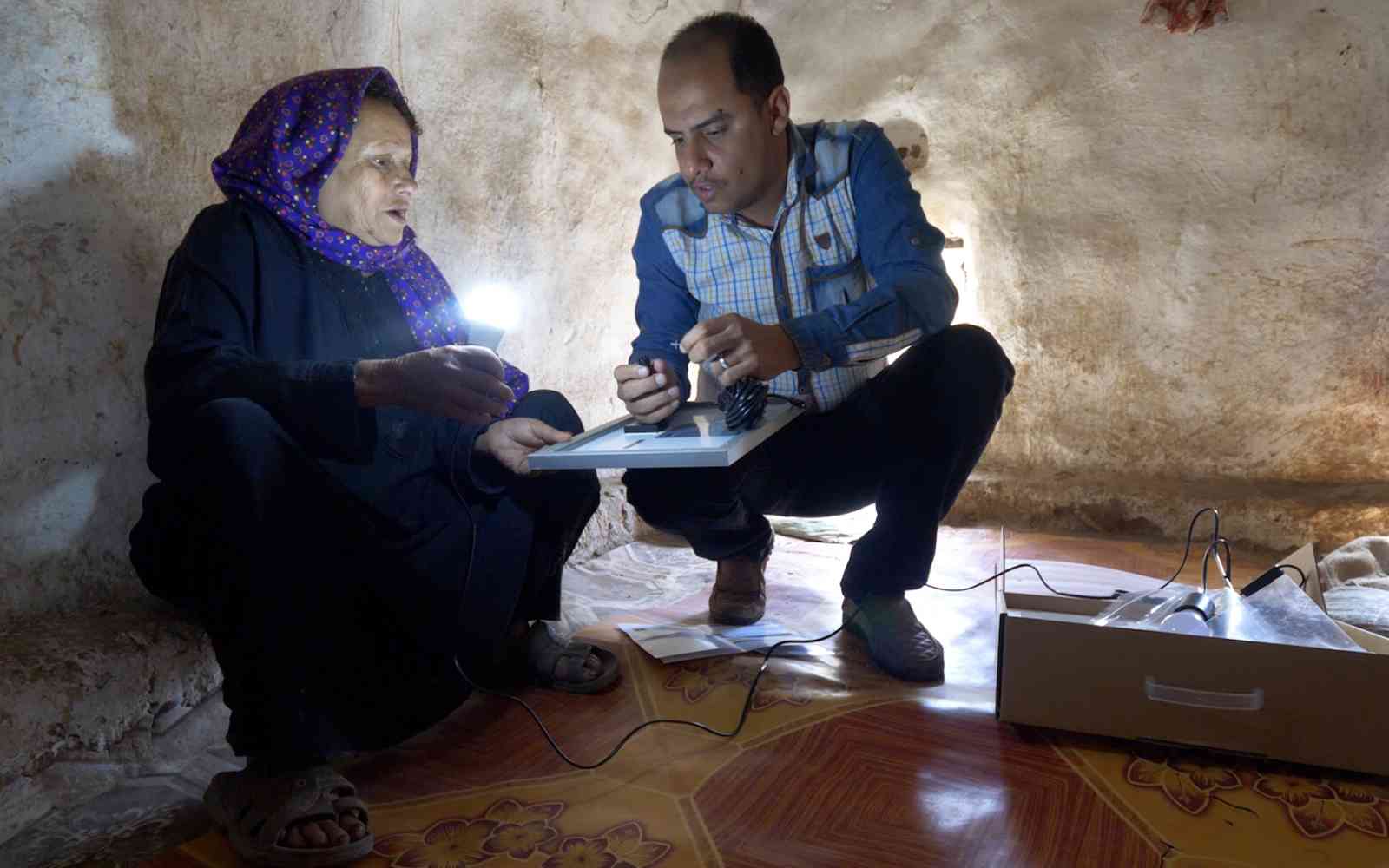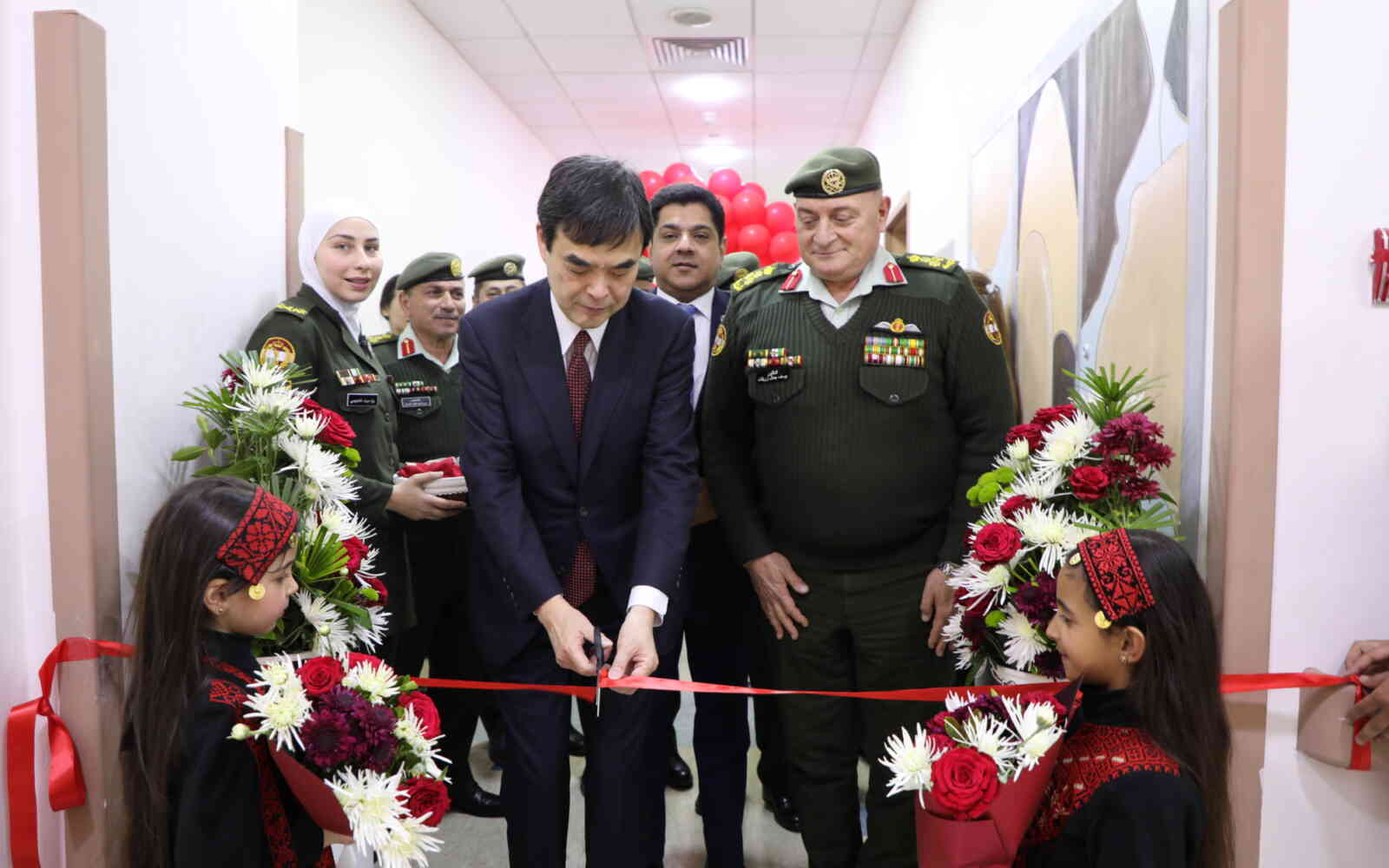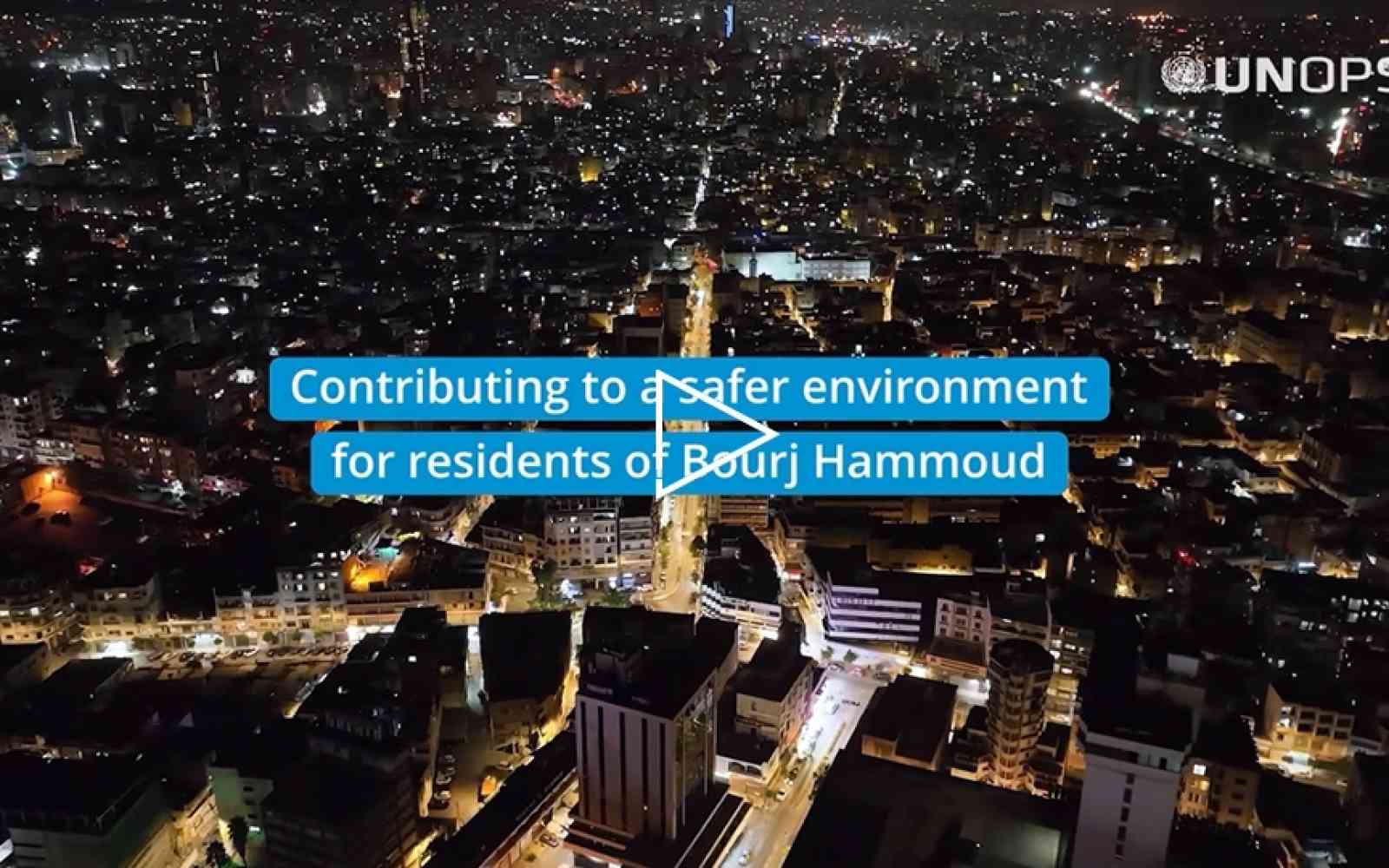The United Nations Office for Project Services (UNOPS)
Urgently improving access to essential services amid Syrian crisis
In Hama Governorate, renewable energy solutions are helping provide vulnerable communities with improved access to essential services.
In Syria, an estimated 16.7 million people require humanitarian assistance – the highest number of people in need since the start of the crisis. Conflict has damaged critical infrastructure and frequent electricity shortages have left millions without access to essential services.
A series of powerful earthquakes that hit the Türkiye-Syria border in February 2023 further strained an already fragile system.
To help improve access to services in vulnerable communities, UNOPS, with funding from the government of Japan, installed solar panels in five public schools and five primary health centres in Hama Governorate.
At the schools, the solar panels helped improve education services, providing power to students and teachers.
“When we came to school before, it was dark. We had to rely on the flashlight on our phones to see,” said Ghazal Btehe, Principal of Qutayba Bin Muslim Baihili School. “Ninety per cent of the school’s teaching equipment requires electricity to operate. It wasn’t being used because there was no power supply,” she added.
The five health centres, which serve more than 57,000 people, can now provide critical services to patients in need.
“The situation was bad due to the continuous power cuts. A lot of services stopped at the dental clinic, the reproductive health clinic and the treatment of asthma,” said Fikrat Abboudieh, Head of Sabboura Health Centre. “The solar panels are helping us to provide many services to patients [now],” she added.
All ten facilities were damaged by the earthquakes. To improve building conditions, minor rehabilitation works were also carried out as part of the project.















